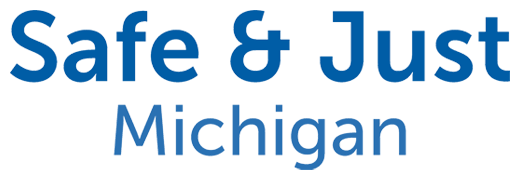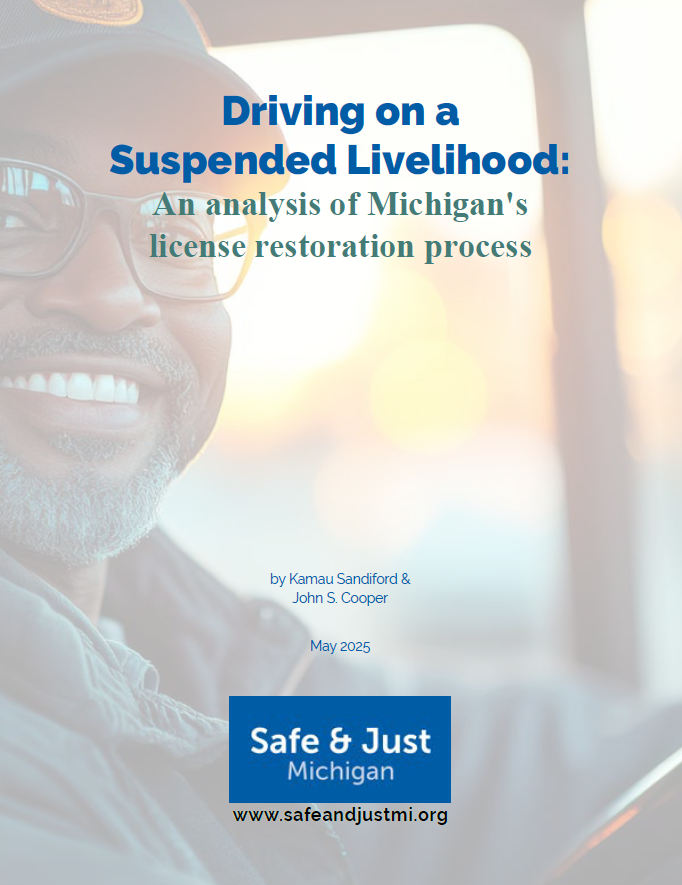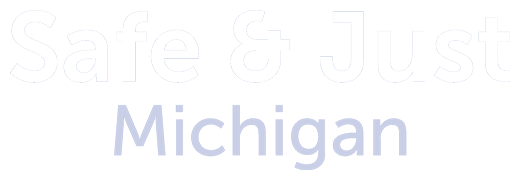:: our work ::
INCOME-BLIND JUSTICE >> Driver's License
Campaign Brief:
Restoring Driver's Licenses
Michigan is designed around the car, and it’s hard to get to work, school or run errands without one. Yet we make it very challenging for people to drive legally: driver’s licenses can be suspended for non-moving violations that arise out of poverty (and until recently, for unpaid fines and fees), and they are difficult to get back.
Due to a lack of alternatives, people with suspended driver’s licenses often feel pressured to drive without a license to keep their jobs and complete essential tasks of daily life, but getting pulled over can result in cycles of involvement with the legal system. It’s time for that to change.
:: campaign overview ::
Background
Michigan routinely suspends hundreds of thousands of driver’s licenses as a consequence of driving under the influence, moving violations that don’t involve substances, and even nonmoving violations and reasons unrelated to driving at all, such as being late on child support or failing to make a scheduled court appearance. Unlicensed driving poses a problem for all of us. For the unlicensed drivers themselves, there is the risk of being pulled over and incurring even more penalties, often in the form of even longer driver’s license suspensions or revocations. Other drivers worry about being involved in an accident with an unlicensed — and therefore uninsured — driver, which can create added headaches and hassles to even minor accidents.
New Michigan laws have taken a less punitive, more practical stance toward suspending driver’s licenses for violations unrelated to safe driving is changing. As a result, the number of people with driver’s license suspensions in Michigan has fallen by more than half from 323,812 in 2021 to 158,088 in 2022.
That’s tremendous progress, but there is more that can be done to reduce the number of people unnecessarily struggling to accomplish everyday tasks like taking their kids to school or getting to work. And, of course, more licenses continue to be suspended yearly.
Vision
Holding people accountable when they have broken the law is important; punishing people decades of entanglement with the criminal legal system is senseless and counterproductive.
Michigan made a good start in 2021 when it updated laws to reduce driver’s license suspensions for reasons unrelated to unsafe driving. But those changes didn’t go far enough, and far too many Michiganders are still driving on suspended licenses even though they lost them for reasons that had nothing to do with their safety behind the wheel.
Solution
Safe & Just Michigan has been working with our partners in the advocacy community and in state government to better understand why people are losing driver’s licenses in Michigan, what prevents people from getting their driving privileges restored and the best solutions for resolving these challenges. Working together, we have developed several proposals, including:
- Factoring in a person’s ability to pay various fees and fines: Courts already make this sort of assessment when considering a person’s ability to pay other kinds of court debt, so the framework and mechanism for this decision-making exists and is already working.
- Eliminating or making the existing $45-per-violation clearance fee waiveable: Each Failure to Appear or Failure to Comply with a court order or judgement that resulted in a suspended license bears a $45 clearance fee. Currently, these fees must be paid before the Secretary of State accepts the $125 reinstatement fee.
- Removing or modifying the habitual offender rule: There is not a limit on the look-back period to consider someone a habitual offender in terms of DUI conviction, which means that someone who had just two DUI convictions in the early 1990s — 30 years ago — would still be considered a habitual offender today.
- Limit certain requirements to prove sobriety, such as attendance at self-help programs: At many license reinstatement hearings, petitioners are expected to show they are sober and must attend self-help groups like Alcoholics Anonymous to prove their dedication to sobriety. This approach artificially limits who can get their driver’s licenses back and what evidence can do so: a DUI does not establish that a person is an alcoholic and the reinstatement process should not require the person to prove they aren’t. The issue should be whether a person can be a safe driver and whether they are unlikely to reoffend.







